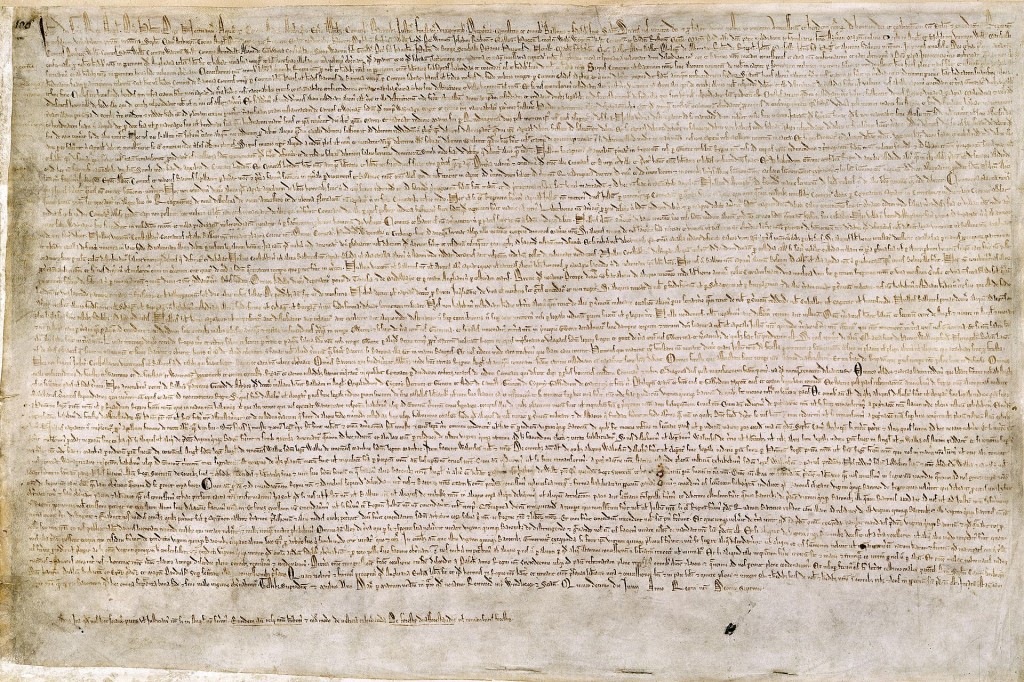Good morning, Whitewater.
Sunday will bring a likelihood of afternoon thunderstorms and a high of eighty-one to Whitewater.
On this day in 1215, King John of England accepts and places his seal on the Magna Carta:
Magna Carta was the first document imposed upon a King of England by a group of his subjects, the feudal barons, in an attempt to limit his powers by law and protect their rights.
The charter is widely known throughout the English speaking world as an important part of the protracted historical process that led to the rule of constitutional law in England and beyond.
The 1215 charter required King John to proclaim certain liberties and accept that his will was not arbitrary—for example by explicitly accepting that no “freeman” (in the sense of non-serf) could be punished except through the law of the land, a right that still exists under English law today. The name Runnymede may be derived from the Anglo-Saxon ‘runieg’ (regular meeting) and ‘mede’ (mead or meadow), describing a place in the meadows used to hold regular meetings. The Witan, Witenagemot or Council of the Anglo-Saxon kings of the 7th to 11th centuries was held from time to time at Runnymede during the reign of Alfred the Great. The Council met usually in the open air. Succeeding versions of the Council influenced the creation of England’s 13th century parliament.
On this day in 1832, Gen. Scott takes command in the Black Hawk War:
On this date General Winfield Scott was ordered by President Andrew Jackson to take command at the frontier of the Black Hawk War. Scott was to succeed General Henry Atkinson, thought to be unable to end the war quickly. General Scott moved rapidly to recruit troops and obtain equipment for his army. However, while in New York, the troops were exposed to an Asiatic cholera. Just outside of Buffalo, the first cases on the ships were reported and death often followed infection. By the time the ships reached Chicago, the number of soldiers had dropped dramatically from 800 to 150, due to disease and desertion. Rather than going on to the front, Scott remained with his troops in Chicago, giving Atkinson a brief reprieve. [Source: Along the Black Hawk Trail, by William F. Stark, p. 90-91]

